Al Mayadeen – August 5, 2025
Missiles will pour down on 'Israel' if new war launched: Sheikh Qassem
Hezbollah has fully adhered to the terms of the ceasefire agreement in Lebanon, asserted the Secretary-General of Hezbollah, Sheikh Naim Qassem, stressing that "no violation has been recorded on our part" toward the enemy or in terms of its cooperation with the Lebanese state and maintaining that "Israel is the side that violated the agreement and breached it thousands of times."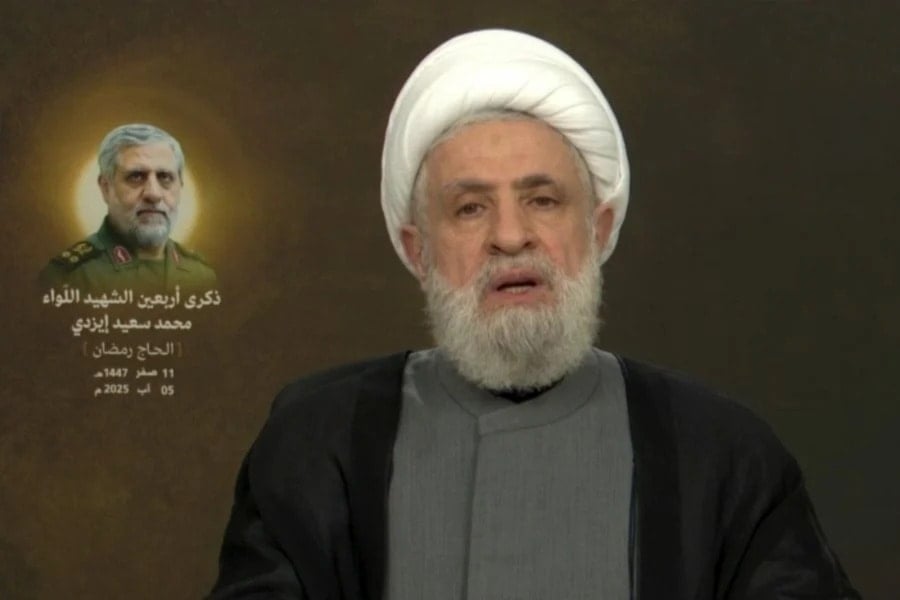
Speaking at an event commemorating 40 days since the martyrdom of Brigadier General Mohammad Saeed Izadi (Hajj Ramadan), Sheikh Qassem revealed that "Israel" "regretted signing the agreement" once it became clear that the deal allowed Hezbollah to preserve military might in Lebanon, adding, "That is why Israel does not abide by the agreement."
"What happened in Syria greatly impacted the measures taken by Israel, making it regret drafting the agreement," he continued.
Barrack's drafts worsened with every iteration
Hezbollah's chief emphasized that the US brought along demands designed to weaken Lebanon, the Resistance movement, and the Lebanese people as a whole, as they solely benefit "Israel's" interests.
He also discussed the contents of US Envoy Tom Barrack's third memorandum, which he characterized as "worse" than the previous two versions. Sheikh Naim Qassem pointed out that one of its key demands requires Hezbollah to dismantle half of its military infrastructure within a month, with the agreement only then requiring "Israel" to withdraw from only three strategic locations out of the five it is currently occupying.
The Resistance leader explained that the essence of the American memorandum boils down to "Israel having a free hand versus all the concessions demanded from Lebanon," pointing out that Washington wants "to strip Lebanon of its military capability represented by the Resistance and prevent the Lebanese army from obtaining weapons that could damage Israel."
He further stated that the US, along with several Arab countries, has exhausted Lebanon, under the slogan of "do whatever is necessary and we will provide you [with what you want]," emphasizing that complying with the United States and surrendering Hezbollah's weapons would not stop Israeli aggression, which Israeli officials themselves openly admit.
Yielding to external pressure erodes sovereignty
The Secretary-General reiterated Hezbollah's rejection of any new agreement, stating that the group opposes any new deals and instead insists on enforcing the agreement already agreed on and signed. He emphasized they would never accept any proposed timeline for implementation while under the threat of Israeli aggression.
The Hezbollah official warned against yielding to external pressure to disarm in exchange for state funding, questioning what value such financial support would hold if it reduced Lebanon to a puppet state. He questioned whether surrendering weapons at the demand of "Israel", the United States, and certain Arab nations could genuinely be considered safeguarding sovereignty.
'Israel' risks its interests if it launches new aggression
Sheikh Naim Qassem emphasized that it is in "Israel's" interests not to launch a full-scale aggression, stating, "In that scenario, the Resistance, the army, and the people will defend [Lebanon], missiles will pour down on the [Israeli] entity, and all the security it built over eight months will collapse in one hour."
Furthermore, he questioned the value of the ministerial statement if it fails to provide genuine sovereignty protection. He challenged the promises it entailed in terms of safeguarding Lebanon's sovereignty and deterring aggressors, asking where the state's actual defense capabilities were when it came to protecting borders and repelling threats.
If authorities admit they lack this capacity, he argued, then, to say the least, they should let Hezbollah preserve and strengthen its existing defensive capabilities.
Lebanese leadership should protect security, not strip it
Hezbollah’s Secretary-General Sheikh Naim Qassem said the Lebanese state is responsible for resisting external pressures, urging it to "develop plans to protect security and sovereignty, not to strip its citizens of their capabilities and lose its points of strength."
He emphasized that "the Resistance is enshrined in the Taif Agreement as a constitutional principle, and constitutional matters cannot be decided by vote but require consensus," adding that this issue represents "a foundational and strategic commitment that must be addressed within the framework of national security and a defensive strategy."
Furthermore, the Secretary-General declared that no one can deny Lebanon its right to defend its sovereignty or prevent it from maintaining its strength. He emphasized the Resistance's unwavering determination to protect Lebanon's independence, describing it as a powerful movement committed to preserving the nation's sovereignty.
The Hezbollah leader stated they are coordinating their domestic stance through dialogue, warning that no resolution can be reached without internal consensus and cautioning against agitators and those serving Israeli interests while accusing them of being complicit in the bloodshed.
Sheikh Qassem stressed that the Resistance halted aggression that would have gone all the way to Beirut amid its plans to rewrite Lebanon's strategic future, emphasizing this nation's history of sacrifices and bloodshed while vowing no foreign dictates would be accepted.
Consensus remains only solution for Lebanon
Hezbollah's Secretary-General asserted that solutions for Lebanon cannot be imposed unilaterally or dictated from above, emphasizing the Resistance's role as a fundamental pillar of the nation while calling for a complete reevaluation of how national approaches address sovereign and strategic matters.
He warned that no solution can be achieved without consensus, stressing this as a fundamental strategic matter and cautioning against prioritizing personal interests that align with "Israel's" agenda, as he held those responsible accountable for any harm done to Lebanon.
Moreover, Sheikh Qassem emphasized that Lebanon's stability depends on all its people, not one faction at the expense of another, framing the current struggle as an all-or-nothing battle where either all of Lebanon wins together or everyone loses, expressing firm belief in collective victory.
Hezbollah's support base resilient, fighters ready for sacrifice
Hezbollah's leader hailed the Resistance's support base as steadfast and united and asserted that the Resistance's fighters are prepared to make the ultimate sacrifice, contrasting those who liberated land through sacrifice, calling them the true patriots, with those who undermined the nation and destroyed its social fabric.
Sheikh Qassem stressed that "Israel" has failed to achieve its objectives and remains constrained, warning against surrendering to its ambitions through weakness. He affirmed the Resistance fighters’ unwavering alliance with Lebanon’s army and people, vowing they would remain steadfast on the battlefield until victory is achieved.
Current priorities must be focused on the ongoing aggression, not on the disarmament issues, he stressed, noting that Lebanon stands at a pivotal moment in its fight to preserve independence. The country now confronts three intertwined threats: foreign interference, US-backed regional pressures, and internal divisions, according to Sheikh Naim Qassem, who asserted that Lebanon remains strong with its Army, People, and Resistance trifecta.
Hezbollah's chief emphasized that Lebanon’s rebuilding and sustained stability depend on three key elements: broad participation and cooperation, setting priorities within a national unity framework, and not yielding to external guardianship, whatever its origin.
Hajj Ramadan, a legacy of devotion to al-Quds
Regarding the occasion, the Secretary-General of Hezbollah emphasized that the martyred commander Mohammad Saeed Izadi, known as Hajj Ramadan, had come from the farthest reaches of the earth to dedicate himself to the Palestinian people and their liberation. He praised Izadi’s jihadist path and his pivotal role in supporting the Palestinian resistance.
He further stated that Hajj Ramadan was instrumental in strengthening Gaza’s defensive capacities, leading the coordination of its defense strategy and the growth of its resistance movement. His focus, he emphasized, was especially on expanding militant activities across Palestine.
Sheikh Qassem noted that the martyred commander had a clear vision, firmly believing that those who serve al-Quds will be honored and elevated, stressing that Hajj Ramadan was deeply committed to strengthening Palestinian national unity.
The Hezbollah Secretary-General further noted that "Hajj Ramadan came to Lebanon just two days after the martyrdom of the Master of Martyrs, Sayyed Hassan Nasrallah, to place himself at the disposal of Hezbollah.
Imran Khan supporters, MPs detained on 2nd jail anniversary
Former Prime Minister of Pakistan Imran Khan faces dozens of charges since 2023.
At least six provincial lawmakers and dozens of supporters of former Pakistani Prime Minister Imran Khan were detained on Tuesday ahead of a planned protest demanding his release, according to his party, Pakistan Tehreek-e-Insaf (PTI).
The protest was scheduled to mark the second anniversary of Khanメs initial arrest on August 5, 2023. He faces multiple charges that he claims are politically motivated.
"Several arrests have been reported so far, including seven members of the Punjab assembly," said PTI spokesperson Zulfikar Bukhari, who is based in London for security reasons.
The detentions took place in Lahore as the MPs were en route to the protest site. Social media posts from the party showed photos and videos of police vans taking away additional supporters.
Khan’s political momentum curtailed by repeated crackdowns
Despite remaining highly popular, Khanメs political momentum has been curtailed by repeated crackdowns on PTI leaders and activists. He was ousted from power in 2022 through a no-confidence vote after falling out with the country’s influential military.
Since August 2023, Khan has been in custody facing dozens of charges. In January, he and his wife were convicted of corruption and sentenced to 14 and 7 years in prison, respectively.
Separately, anti-terrorism courts in July and August handed down prison terms of up to 10 years to PTI leaders, including MPs and the opposition leader in the National Assembly, for their alleged roles in violent 2023 protests targeting military facilities.
In response to his continued detention, Khan’s sons, Kasim and Sulaiman, children from his former marriage to Jemima Goldsmith, have launched an international media campaign to advocate for his release.
Full occupation of Gaza on the table despite military's opposition
Sources say Netanyahu seeks full occupation of Gaza, while "Israel's" chief of staff warns against long-term presence, citing risks to troops and advantages for Hamas.
Sources close to Israeli Prime Minister Benjamin Netanyahu said on Monday that a decision has been made to move toward a complete military occupation of the Gaza Strip, according to Channel 14. The sources added, “If the Chief of Staff is not on board, he can resign.”
During a briefing reported by Kan 11 broadcaster, Netanyahu’s office conveyed that the prime minister is determined to fully occupy the Gaza Strip in order to "settle the conflict with Hamas." Ministers in the Israeli government reportedly said the security cabinet is expected to convene soon to finalize the decision.
Internal rift: Chief of staff opposes full occupation
A senior official from Netanyahu’s office told Channel 12 that “Hamas will not release any more captives without full surrender. If we don't act now, the hostages will die of hunger, and Gaza will remain under Hamas control.”
However, a political source countered that “no final decision has been made yet,” and that the authority to decide lies with the cabinet, according to Channel 14.
Earlier in the day, Israeli Army Radio confirmed that tensions between Chief of Staff Eyal Zamir and the political leadership have reached a peak. Zamir is reportedly demanding strategic clarity on the direction of the war on Gaza.
According to the station, Halevi is pushing for a prisoner deal, indicating a willingness to show flexibility to achieve it.
Zamir warns against prolonged occupation of Gaza
In closed discussions, Zamir warned that a long-term ground presence in the Gaza Strip would endanger Israeli forces, serve Hamas' interests, and increase the army’s attrition.
Faced with the current situation, the military is expected to present the political leadership with two options in the absence of a deal:
- Full occupation of the Gaza Strip, an option opposed by the military leadership
- Siege and attrition, the preferred approach of the military command
Ali Larijani appointed new head of Iran’s Supreme National Security Council
President Masoud Pezeshkian has appointed veteran politician Ali Larijani as the new head of Iran’s Supreme National Security Council (SNSC).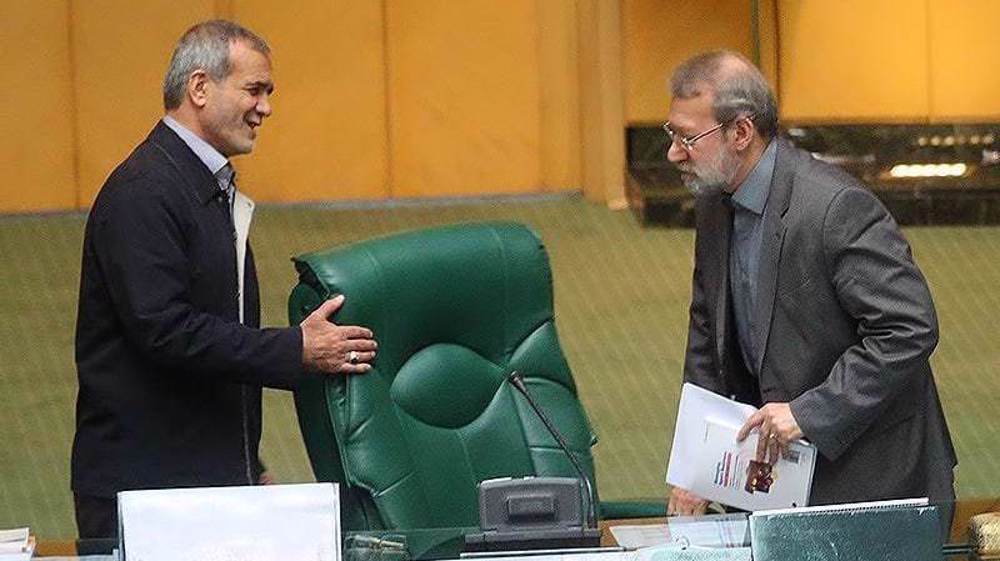
Larijani will replace Ali Akbar Ahmadian as secretary of the SNSC, the top council that oversees Iran’s national security and sets the direction of its foreign policy.
In an official decree issued Tuesday, Pezeshkian said the new head of the top security body is expected to exercise “prudent and precise oversight over the Secretariat’s functions.”
He also emphasized the need for Larijani to “foster synergy among the relevant institutions, monitor and prioritize national security challenges—especially emerging technological threats—redefine strategic concepts, and adopt intelligent, people-centered approaches in line with the evolving national security landscape.”
“The ultimate goal is to achieve sustainable security at the national, regional, and international levels, safeguard the Islamic Revolution, uphold the country’s honorable interests, and preserve national unity, territorial integrity, and sovereignty," the statement read.
Larijani held the same top security position from 2005 to 2007.
Iranメs top security body approves formation of Defense Council
Larijani has previously held key positions, including head of the Islamic Republic of Iran Broadcasting (IRIB), and Speaker of Parliament for three consecutive terms. He is currently an advisor to Leader of the Islamic Revolution Ayatollah Seyyed Ali Khamenei.
The announcement comes after the SNSC approved the formation of a new body, the National Defense Council, which is tasked with formulating defense strategies and enhancing the operational capabilities of the Armed Forces.
President Pezeshkian will reportedly head the council, which also includes the heads of the three branches of government, senior military commanders, and designated ministers relevant to defense affairs.
How Yemen’s Sayyad missile bolsters its naval deterrence against adversaries
By Ivan Kesic
Yemen has successfully tested the Sayyad naval cruise missile, a long-range, difficult-to-detect radar-evading missile with a devastating warhead, increasing its operational range in the surrounding seas.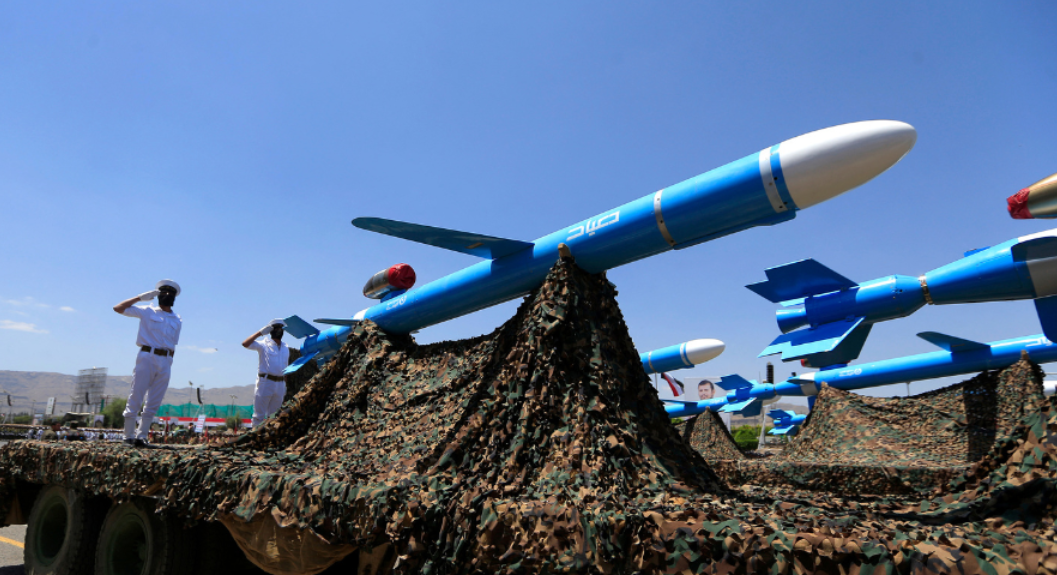
In a statement on Monday, the Yemeni Navy confirmed the entry of Sayyad into active service.
It said the Sayyad missile has a range of up to 800 kilometers, advanced capabilities for hitting moving targets with high accuracy, and the ability to evade enemy radar systems.
The new missile, it stated, can be launched from any point within Yemeni territory to target enemy naval vessels in the Red Sea, the Arabian Sea, and all the way to the Indian Ocean.
The long reach of the missile enhances the Yemeni military's maritime deterrence capabilities in the face of American, British, and Israeli hostile activities in the region.
Prior to this test, the Sayyad cruise missile was first displayed at an impressive military parade in September 2023 at Al-Sabeen Square in the capital city of Sana'a.
At the time, it was said that the cruise missile uses a solid fuel booster, has a medium range, and is designed to strike both stationary and moving sea targets with high destructive capability.
What are the Sayyad missile's specifications?
The Sayyad cruise missile is the new addition to Yemen's naval arsenal, announced as part of their ongoing military campaign against the Israeli regime and the enemy fleet in the Red Sea.
Yemeni military has accelerated its weapons development since 2015. The Sayyad (Arabic for "hunter" or "fisherman") missile represents an evolution of the country's cruise missile capabilities.
In 2023, Yemeni military spokespersons and media reports referred to a range of approximately 800–1,000 kilometers, enough to cover 80 percent of the Red Sea, the entire Gulf of Aden, and parts of the Arabian Sea and the Indian Ocean.
Although this range does not cover the occupied Palestinian territories, it is sufficient for the enemy fleet, most often operating hundreds of kilometers from Yemen.
The missile is equipped with satellite navigation and possibly inertial guidance, but the technical navigation details and where this technology comes from are unknown.
This allows precision strikes on both land and sea targets, a capability demonstrated during recent Red Sea strikes on Israeli-linked commercial shipping.
The cruise missile has a length of 6.8 meters and a diameter of 0.5 m, and its payload is estimated at 200–300 kilograms of conventional explosives, sufficient for damaging military installations, naval or merchant vessels.
Sayyad is launched from mobile ground-based launchers, similar to other Yemeni cruise missiles, though sea-launched variants are under development, as hinted by official statements this summer.
Launching it from sea platforms would also imply an increase in operational range relative to Yemeni soil, covering the entire Red Sea, more of the Indian Ocean, and parts of the Mediterranean Sea.
The cruise missile utilizes a solid-fuel rocket booster and features a turbojet mounted above the frame, with a subsonic cruising speed estimated at Mach 0.7–0.9, consistent with other similar cruise missiles.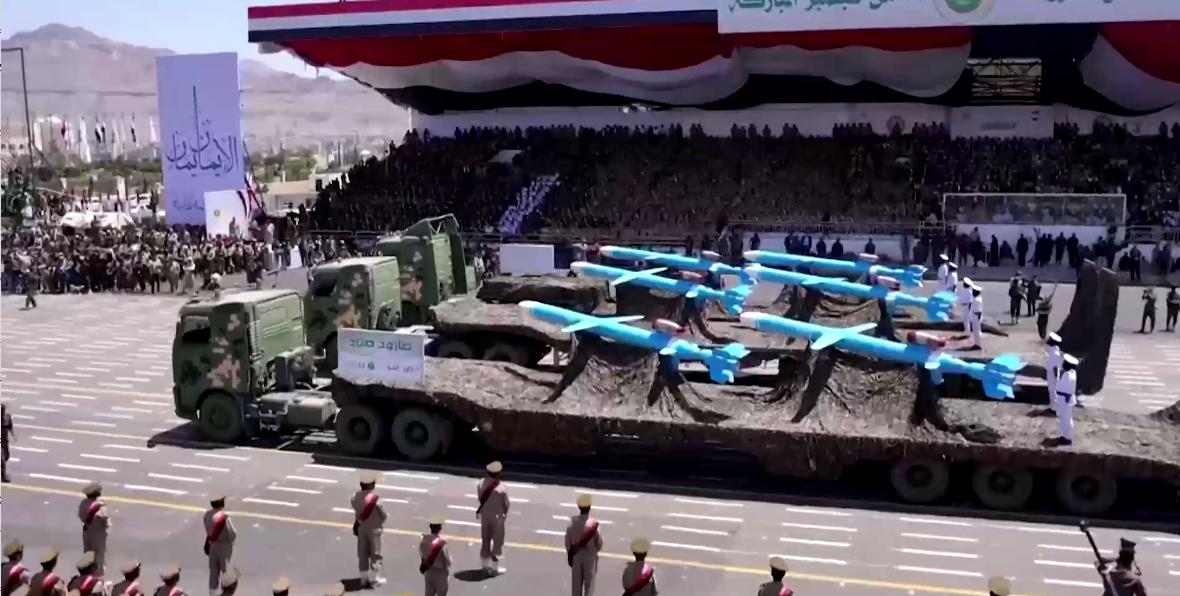
It is designed to fly at very low altitudes, just above the sea surface (sea-skimming), making it harder to detect by radar systems. This low altitude also reduces the time available for interception.
Among Iranian cruise missiles, the models most similar to the Yemeni Sayyad are the Qader-380 (or Qadr-380) anti-ship cruise missile and the Paveh surface-to-surface cruise missile.
Very similar in design, Qader-380 boasts a range exceeding 1,000 km, is resistant to electronic jamming, and can be launched by a single operator within five minutes.
It uses a truck-mounted ramp launch system, which deploys the missile with fully extended wings rather than the traditional folded-wing, tube-launched configuration seen on numerous other Iranian naval missiles.
How does Sayyad strengthen the Yemeni arsenal?
Yemen's cruise missile program emerged during the Saudi-imposed war, driven by the Ansarullah resistance movement's desire for modernization and self-sufficiency. Prior to the imposed war, Yemen’s military lacked advanced cruise capabilities, relying only on Soviet-era systems.
Initial cruise missile attacks (2015–2018) targeted enemy border posts with limited success due to rudimentary guidance. However, the introduction of the Quds-1 cruise missile marked a turning point in Yemeni military capabilities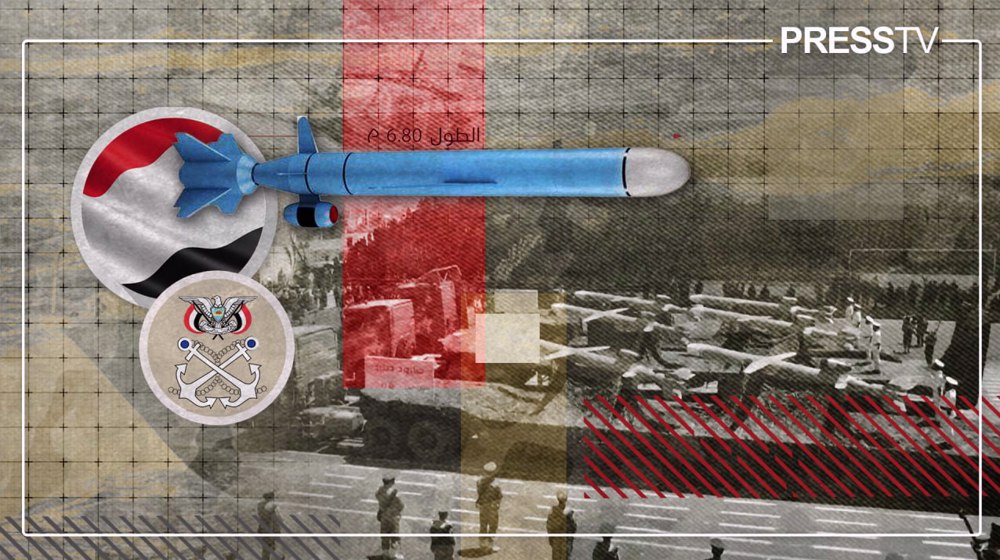 .
.
The first Yemeni cruise missile was the Quds-1, introduced into service in 2017. With a range of 700–1,000 kilometers, it has been used to strike enemy oil facilities and Red Sea shipping vessels.
The subsonic missile carries a 150–200 kg warhead and relies on GPS or inertial guidance systems for targeting.
The Sammad cruise missile series, which includes the Sammad-2 and Sammad-3 variants introduced between 2018-2019, has a range of 300-600 kilometers and was used in early strikes against enemy military bases and installations. These missiles feature a relatively simple design.
Underground factories in Saada and Sana’a manufacture these missiles, with an estimated annual production of dozens, and as of 2025, Yemen is believed to possess 100–150 cruise missiles.
The Sayyad naval cruise missile represents a significant addition to Yemen's existing arsenal of cruise, anti-ship and ballistic missiles, and drones. Compared to existing cruise missiles, Sayyad is low-flying and has a longer range.
Naval cruise missiles offer greater range, precision, and payload capacity than most kamikaze drones while being harder to intercept than ballistic missiles due to their low-altitude, terrain-hugging flight profiles.
While kamikaze drones are also low-flying and long-range, they most often carry warheads weighing several dozen kilograms and are not capable of causing catastrophic damage, while the powerful Sayyad warhead can severely damage or even sink an enemy ship.
The conventional anti-ship missiles in the Yemeni arsenal also have powerful warheads; however, their range is three to five times shorter than the Sayyad cruise missile.
